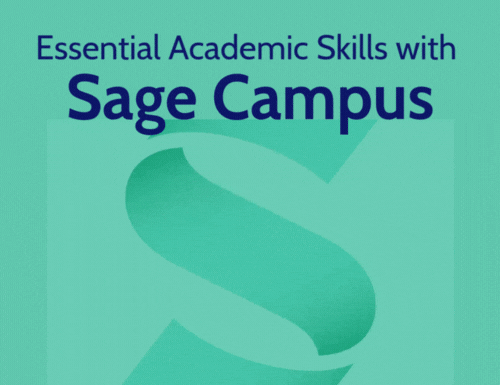Discover Scite: Your Smart Research Companion
- Priscilla Lee
- Apr 16, 2025
- 2 min read
Navigating the vast landscape of academic research can often feel overwhelming, especially with the sheer volume of scholarly literature available. On top of that, determining the credibility and relevance of sources is critical—but time-consuming. That’s where Scite comes in. This AI-powered tool helps researchers make faster, more informed decisions by going beyond traditional citation counts.
Smart Citations
Smart Citations is a feature which categorises references into supporting, contrasting, or mentioning statements. This unique approach gives users a quick snapshot of how a study has been received within the academic community, something beyond what a simple citation count can reveal.

This snapshot, called a Scite badge, shows the total number of times a work has been cited, the number of "supporting statements", mentions or "contrasting statements" found in the cited works.
With just a click on the Scite badge, you can view a detailed listing of the citing works and the relevant parts of the work where the citation can be found.

A snippet of how the article is being mentioned in a citing work listed
Scite browser extension: smart citations on-the-go
Scite works on platforms such as Google Scholar, PubMed, SAGE, Springer Nature, Taylor & Francis, and more.
Users who have installed the extension can see the Scite badge while browsing research articles on these platforms.
Click here to install the extension and try out this feature.

Scite Assistant: an AI research assistant
The Scite Assistant, which is powered by ChatGPT, can be used to find relevant studies, generate summaries, and assess the credibility of sources. This enables more efficient literature reviews, deeper insights into scholarly debates, and faster identification of high-quality research, saving time and improving the research workflow.
Custom Dashboards for better organisation
Scite’s Custom Dashboards allow users to group selected publications for further analysis. This feature allows users to analyse a set of works collectively with the options to organise the publications by:
Number of citing papers,
Supporting statements, or
Contrasting statements.
It provides information such as the total number of citations, types of citations (supporting, contrasting, or mentioning), and alerts on any editorial notices (e.g., retractions or corrections) issued. It helps users track the influence of specific works, monitor trends in their field, and assess the credibility and reception of selected studies all in one organised view.

Reference Checks
Vet the quality of references used in your paper by running a Reference Check. This tool flags potential editorial issues—such as retracted papers—in your references list, ensuring more accurate and reliable scholarship.

Ready to get started?
NIE staff and students who are using Scite for the first time can create a personal account to explore the full features.
Check out our guide and FAQ for helpful tips. If you missed the Scite demo in March 2025, you can access the recording here.
Questions or feedback? Contact us at libscomm@nie.edu.sg for assistance.
Acknowledgement
We thank Prof Low Ee Ling for granting the use of her publication records.




Comments